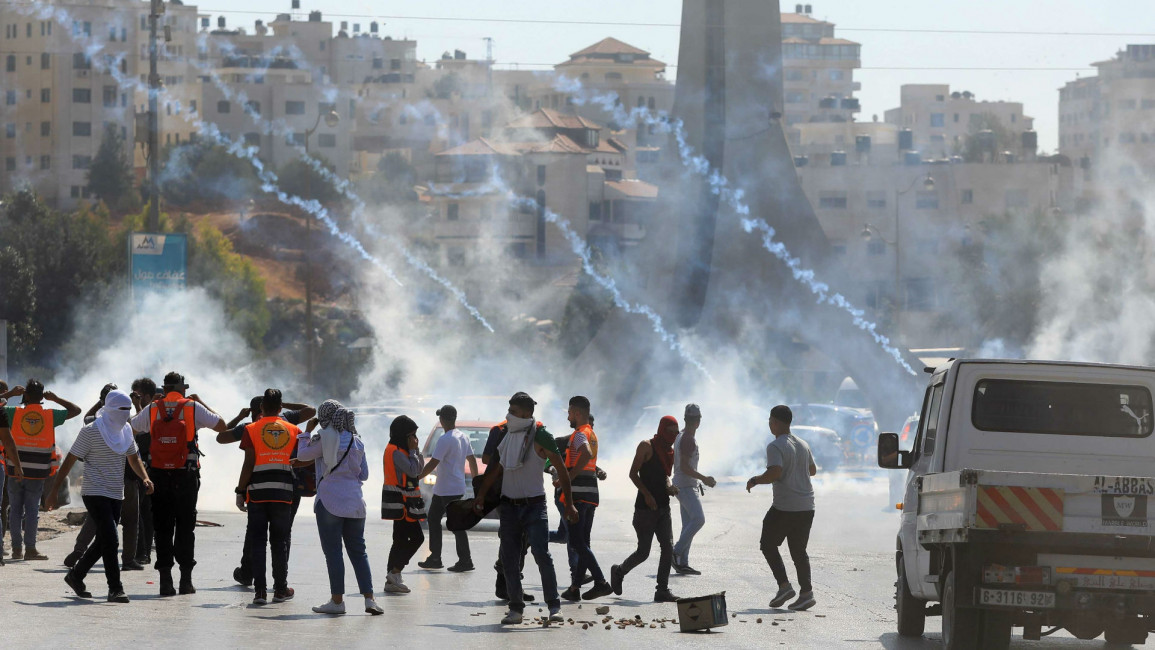Palestinians protest after detainee hospitalised following 'Israeli torture'
Hundreds of Palestinians protested in the occupied West Bank and East Jerusalem on Tuesday after a detainee accused of killing an Israeli teenager in a bomb attack was hospitalised following suspected torture during interrogation.
More than 300 protesters threw stones and hurled tires at Israeli forces in Ramallah, who responded with tear gas, sound bombs and foul-smelling 'skunk' water during the clashes.
Over 50 Palestinians demonstrated in East Jerusalem before Israeli police dispersed the rally and arrested three people, Reuters reported.
The protests follow the hospitalisation of Samir Arbid, a member of the Popular Front for the Liberation of Palestine (PFLP), after alleged torture at the hands of Israel's Shin Bet security agency.
Arbid, 44, has been held in detention since 25 September on suspicion of orchestrating a bomb attack that killed a 17-year-old Israeli girl near the West Bank settlement of Dolev in August.
Upon his arrest, Arbid was badly beaten by the Israeli forces and then tortured during interrogation, Palestinian rights groups Addameer said.
Read more: Amnesty International condemns 'legally-sanctioned torture' of Palestinian detainee
Arbid appeared in Israel's Ofer military court on 26 September with visible bruises and told the judge he was in pain and unable to eat, his lawyer said.
Days later he was transferred to hospital after losing consciousness. He was admitted with broken ribs and kidney failure and is currently in critical condition on a respirator.
In 1999, Israel's Supreme Court ruled that while torture and other ill-treatment were generally prohibited, Shin Bet interrogators who used what the Court described as "physical interrogation methods" in "ticking time-bomb" situations may be exempted from criminal prosecution or even investigation.
Since then, Shin Bet interrogators have tortured hundreds of Palestinians, citing the "ticking bomb" plea, and not one of them has been prosecuted.
"Targeting civilians and killing them is a war crime. There is no doubt that those who perpetrate such killings and other abuses should be held accountable for their actions. But resorting to torture during interrogation is also a reprehensible crime," Saleh Higazi, Amnesty International's Deputy Middle East and North Africa Director, said.


